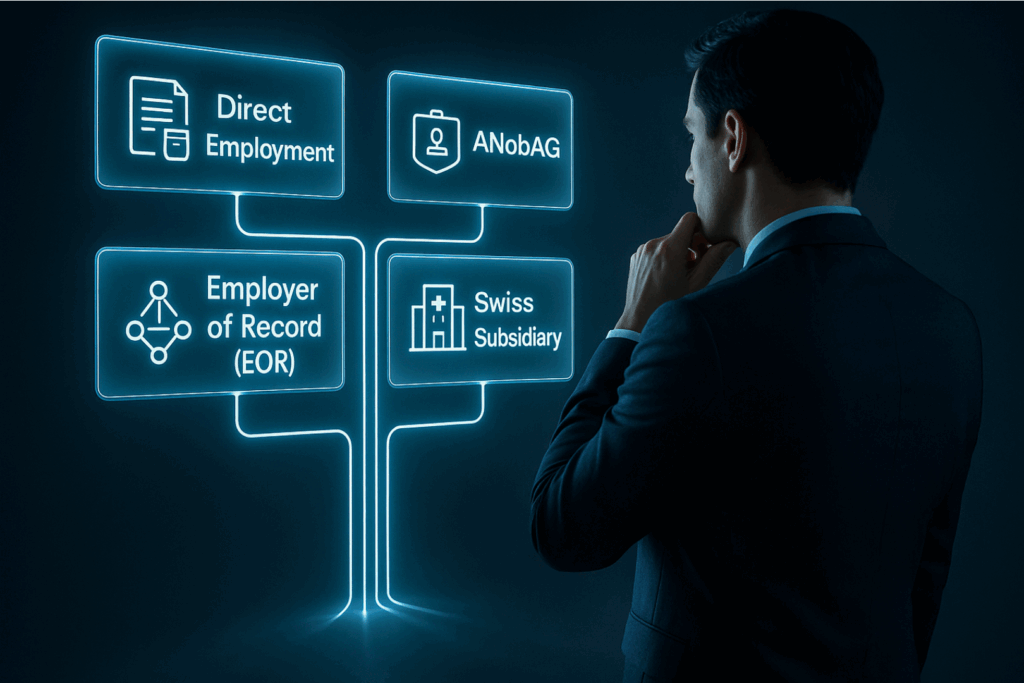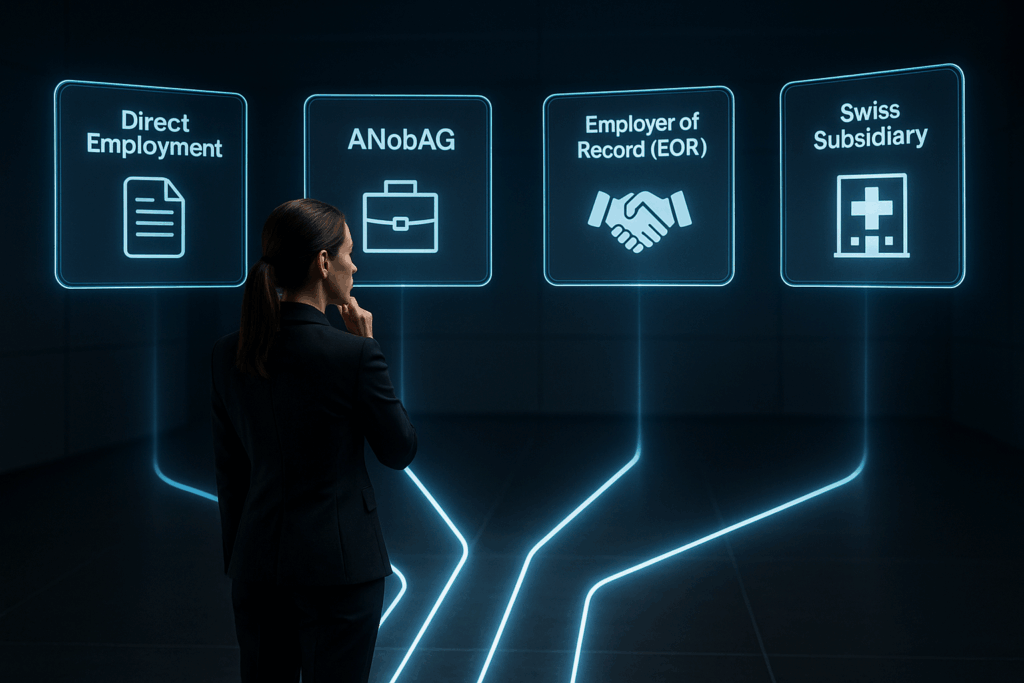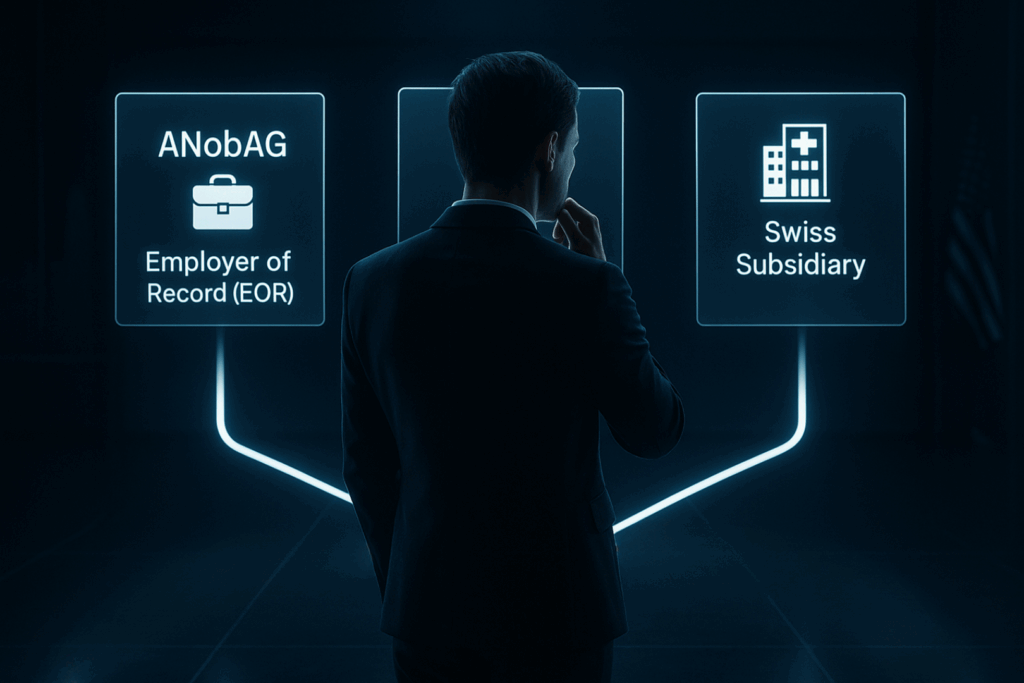Company Taxation System in Switzerland

Switzerland is so attractive for many companies because corporate taxes are very low compared to many other countries. In addition, the individual cantons also compete with each other and woo entrepreneurs with low tax rates to relocate their business there. In this article, we will show you everything you need to know about corporate taxation in Switzerland.
Taxes Depend on the Legal Form of the Company
Depending on the legal form of the company, the taxation differs. A distinction is made between partnerships and corporations.
Partnerships
Partnerships include sole proprietorships as well as general and limited partnerships. However, the latter two are rarely encountered nowadays. Far more common is the sole proprietorship when speaking of a partnership. In partnerships, the owners are liable for the company with their entire private assets.
Corporations
The corporations include both the AG and the GmbH. In contrast to a sole proprietorship, a corporation is a legal entity. The partners or shareholders are not liable (or only to a limited extent) with their private assets.
Corporate Tax for Partnerships
Basic Facts
The sole proprietorship is operated by a private individual who is also liable for the company with his or her entire private assets. Therefore, the income and assets of such self-employed persons are taxed.
The federal government levies direct federal income tax, and the canton levies income and wealth tax. In addition, there are various surcharges and deductions, depending on the municipality. The table once again provides an overview of the characteristic properties:
| Partnership | Confederation | Canton | Community |
| Sole proprietorship / General partnership / Limited partnership | Direct federal income tax | Income and wealth tax | various additions and deductions to the state tax |
Taxation of Partnerships in Detail
Taxation of Total Income and Total Assets
In the case of a partnership, the taxpayer must pay tax on the total income. This consists of all income from the company (profit, salary and interest), as well as any other sources of income. The total income and total assets are taxable at the federal, cantonal and municipal level.
Income Tax
The taxpayer declares all income from the business (and other sources of income, if any) in the tax return. Both domestic and foreign income is declared. The total income is used to derive the tax rate, which follows a progressive system and can vary from canton to canton.
Property Tax
In their tax return, taxpayers declare both their business and private assets – both domestic and foreign. Based on the total assets, a tax rate is calculated, which is also progressive, as with income tax, and varies in the different cantons.
Losses and Depreciation
Losses and business expenses can be offset directly against income. It is important that there is a proper separation between private and business assets. In principle, sole proprietors are allowed to deduct all costs incurred in the course of business activities from their income.
Expenses for the purchase of vehicles, equipment and real estate are not fully deductible in the year of purchase. They must be depreciated over a number of years.
Tip: Leasing fees for vehicles, machinery, hardware or software are fully deductible.
Important: The obligation to provide receipts applies. If you deduct costs from tax, you must be able to provide the relevant receipts to the tax authorities on request. Therefore, always keep them.
Corporate Tax for Corporations
Basic Facts
Here, taxes are not levied on the income and assets of the partners or shareholders, but on the profit and capital of the company.
The federal government levies the federal tax on profits, the canton levies the tax on profits as well as the tax on capital, and depending on the municipality, various surcharges or deductions are added to the state tax:
| Corporation | Confederation | Canton | Community |
| GmbH / AG | Direct federal tax from profit | Profit and capital tax | various additions and deductions to the state tax |
Taxation of Corporations in Detail
In the case of the corporation, the company is taxed independently of its partners or shareholders. There is therefore a clear separation between private and business assets: partners and shareholders pay income and wealth tax; the corporation pays capital and profit tax.
Profit Tax
The profit tax is levied by the federal government as well as by the canton and the municipality. As soon as a corporation is entered in the commercial register, it is liable to tax.
The federal government levies a proportional tax rate of 8.5% on net income. Some cantons and municipalities also apply a proportional tax rate. This varies from canton to canton between 2% and 24%.
In some cantons, however, instead of a proportional tax rate, there is a flexible tax rate, which is based on the earnings intensity of the company. The earnings intensity is determined from the ratio between capital and reserves, as well as the net profit within a tax year.
Capital Tax
Capital tax is levied by the cantons. The tax rate is proportional in most cantons and ranges from 0.3% to 0.9%. The taxable capital is the complete share capital in the case of the AG, and the complete share capital in the case of the GmbH. Reserves are also added to the total capital for both the AG and the GmbH.
Business and Church Tax
In Switzerland, there is the so-called church tax, which is levied by most cantons and paid to the corresponding national churches. Whether a company has to pay church tax depends on its legal form:
Partnership
Unless the owner of the company has left the church, church tax must be paid in accordance with the applicable rules in the canton.
Corporation
An AG or GmbH must pay church tax in accordance with the cantonal tax laws. This also applies if all partners, owners or shareholders are not liable to church tax. Withdrawal, as can be done by natural persons, is not possible for corporations.
Business and VAT
Regardless of the legal form, every company is subject to VAT. However, it can be exempted from this obligation if the annual turnover is below CHF 100,000.
Input Tax Deduction
If the company is not exempt from VAT (annual turnover > CHF 100,000), it may make use of the input tax deduction. In doing so, the company submits a self-declaration of the amount of VAT owed to the Federal Tax Administration on a quarterly or monthly basis. All input taxes for operating expenses may then be deducted from this amount in accordance with the applicable regulations on input tax deduction.
This has the advantage that a company can reclaim the taxes incurred in the value chain (e.g. when purchasing parts or workpieces), the VAT it has to pay to the manufacturer or supplier.
We offer different packages for startups and small businesses. The spectrum ranges from company incorporation to payroll and accounting. After you have contacted us with your non-binding request, we will calculate the service complexity and consequently determine the price. All our corporate clients receive personalized packages, which are put together in consultation with the client.


